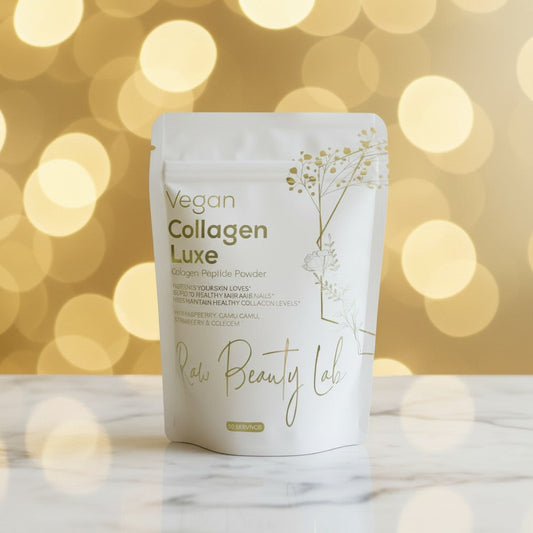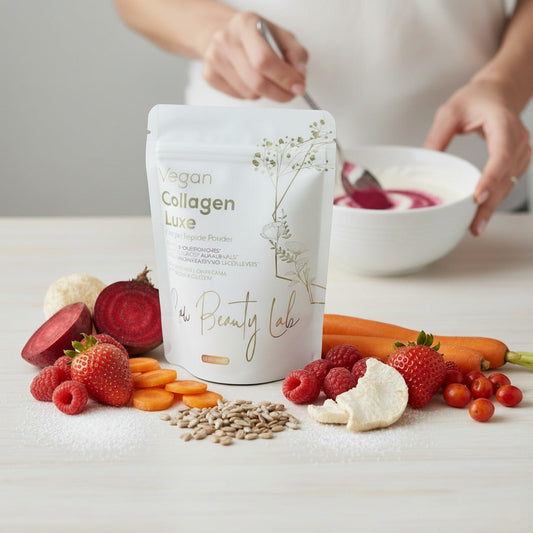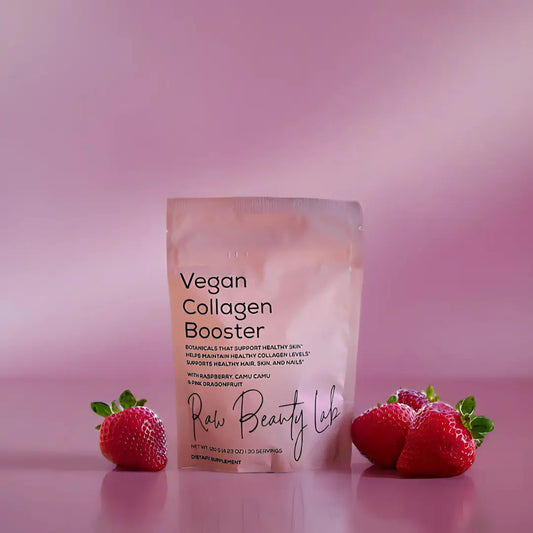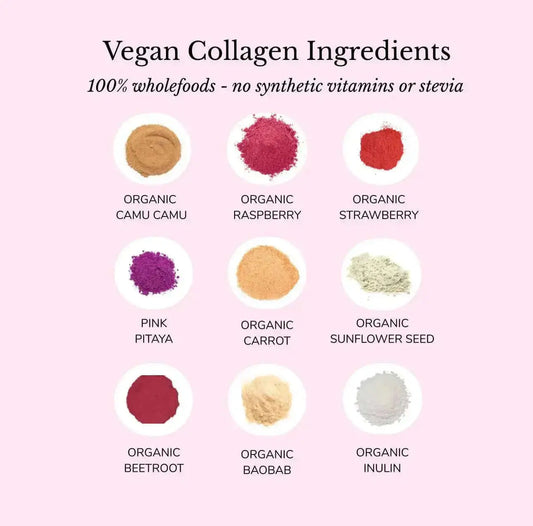Table of contents
Hello, radiant readers! Today, we're diving into the glamourous world of skincare actives, battling it out in the quest for that ever-elusive glow. 🥊✨ We’re pitting two superstar ingredients against each other: Vitamin C, the brightening maestro, and Natural Retinol, the youthful elixir. Each of these powerhouses has its unique benefits, and by the end, you'll know exactly which suits your skincare needs best.
The Brightening Benefits of Vitamin C
Let's kick things off with the dazzling Vitamin C. Renowned for its glow-boosting prowess, this antioxidant powerhouse is celebrated for its ability to brighten and tighten your skin. Here’s the science bit, simplified: Vitamin C targets pigmentation at its root. It inhibits melanin production, thereby fading dark spots and promoting a more even skin tone. A 2017 study published in the Journal of Clinical and Aesthetic Dermatology highlighted its efficacy in reducing hyperpigmentation and fine lines, making it a staple in revealing that radiant complexion we all crave.
Vitamin C’s prowess doesn't just stop at evening out your skin tone; it also shields your skin from environmental aggressors. Imagine it as a shield, fending off free radicals generated by UV exposure and pollution. The result? Reduced signs of sun damage and an overall brighter appearance.
The Positives:
- Improves skin elasticity
- Reduces fine lines
- Boosts overall skin radiance
How to Use: Incorporate a Vitamin C serum into your morning routine for its protective benefits. Psst, pair it with your favorite sunscreen for extra oomph!
Natural Retinol: Nature’s Gift to Youthful Skin
Now onto our second contender: Natural Retinol. Often derived from bakuchiol or carrot seed oil, it mirrors the effects of traditional retinol without the potential irritation. A study in the British Journal of Dermatology in 2018 showed that bakuchiol is just as effective as retinol in improving skin tone, elasticity, and firmness, all the while being gentle on sensitive skin.
Natural Retinol works by speeding up cellular turnover, effectively telling your skin to behave like its younger self. It’s the ultimate renewal vehicle, buffing away dead skin cells and unveiling a fresher layer beneath. The result is smooth, plump, and bouncy skin that gives off an effortless glow.
The Positives:
- Reduces appearance of wrinkles
- Enhances skin smoothness
- Minimizes large pores
How to Use: Ideal for evening use; let those active ingredients work their magic while you sleep.
Vegan Skincare Actives: Staying True to Your Values
If you're committed to a green and clean beauty lifestyle, then you're in luck! Raw Beauty Lab offers a range of vegan skincare actives designed to fit seamlessly into your routine. Their Vegan Collagen is an excellent choice for those looking to fortify their skin's structure while staying true to their ethical beliefs.
Hyaluronic Acid vs Glycerin
While we’re discussing active ingredients, let’s briefly touch on the great hydration debate: Hyaluronic Acid vs. Glycerin. Both are humectants, meaning they draw moisture into the skin, but they work slightly differently. Hyaluronic Acid can hold up to 1,000 times its weight in water, making it a hydration heavy-lifter. Glycerin, on the other hand, is great for drawing in moisture from the air and is incredibly soothing. Both leave your skin plump and dewy—just choose based on your personal preference!
Peptides for Aging Skin
Peptides are all the rage these days, and science backs up the hype. Peptides act as messaging agents, encouraging your skin to produce more collagen. Think of them as tiny cheerleaders for your skin, rooting for elasticity and firmness. Incorporating peptides into your regimen means you're giving your skin a boost to synthesize collagen and elastin, the key building blocks for youthful, supple skin.
Adaptogens for Skin: Nature’s Stress Relievers
And if that wasn’t enough, consider adaptogens for skin—like ashwagandha and holy basil—which help in managing your skin’s reaction to stress. Adaptogens are plants that help balance your body's nervous system, and when applied topically, they can reduce redness and soothe irritation, keeping your skin calm and collected.
Conclusion: Which is Right for You?
So, how do you choose between Vitamin C and Natural Retinol? If you're aiming for protection and brightening with a touch of defense against environmental factors, go the Vitamin C route. If smoothing, anti-aging properties with a focus on gentle cell turnover is more your speed, then Natural Retinol is your best bet.
Why not have both in your skincare arsenal for a multifaceted approach? Remember, beauty is about feeling good in your own skin, and a thoughtful skincare regime is your toolkit for achieving that healthy glow.
Stay vibrant and informed, and remember to check out Raw Beauty Lab for your vegan beauty needs!
Until next time, keep glowing! ✨






